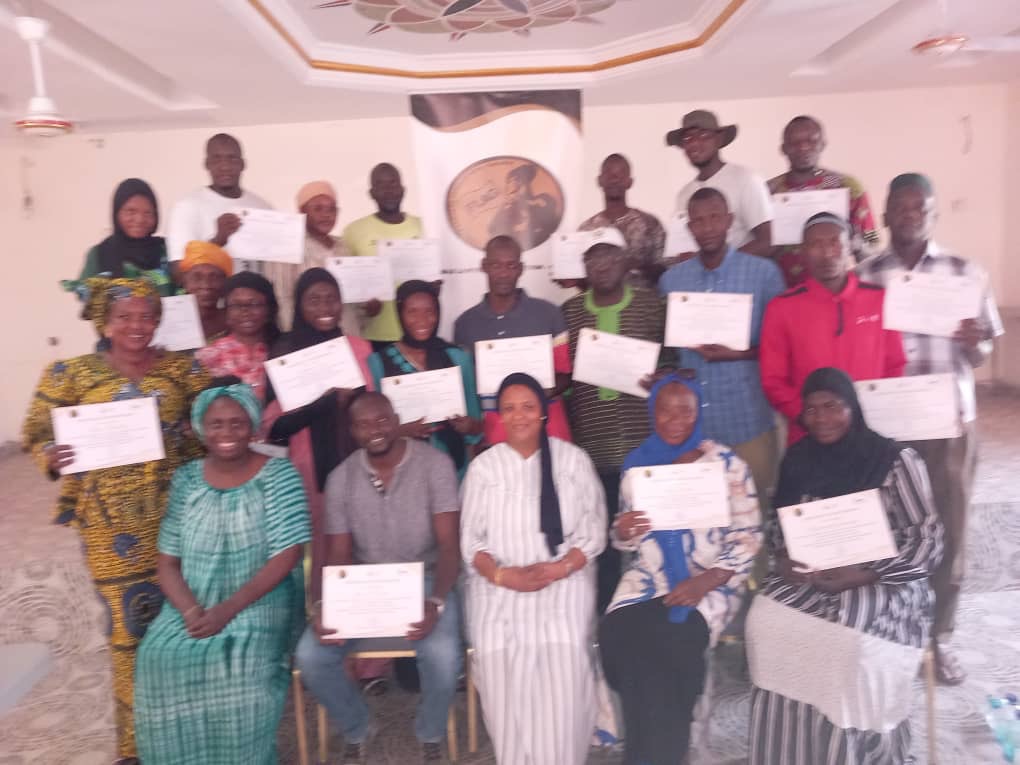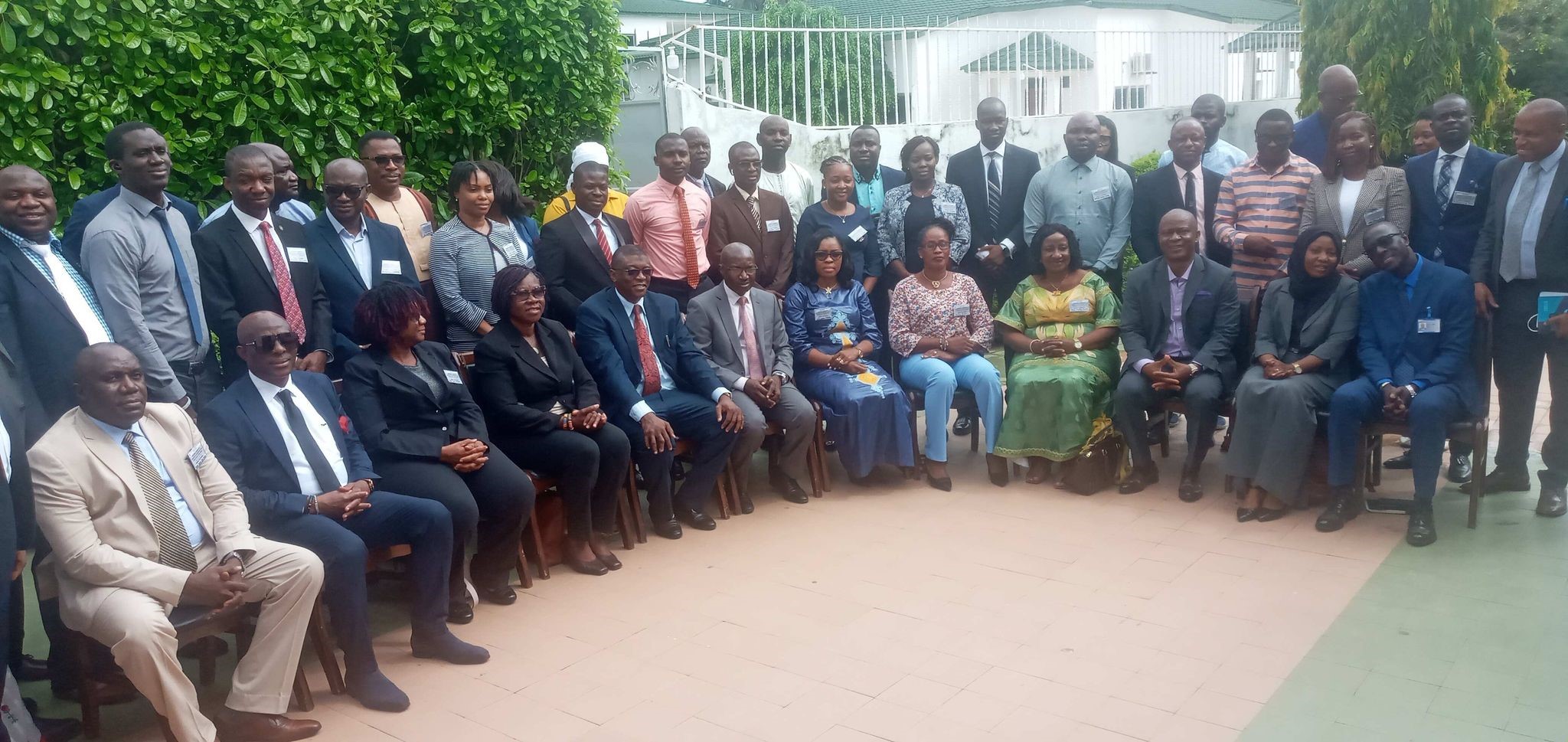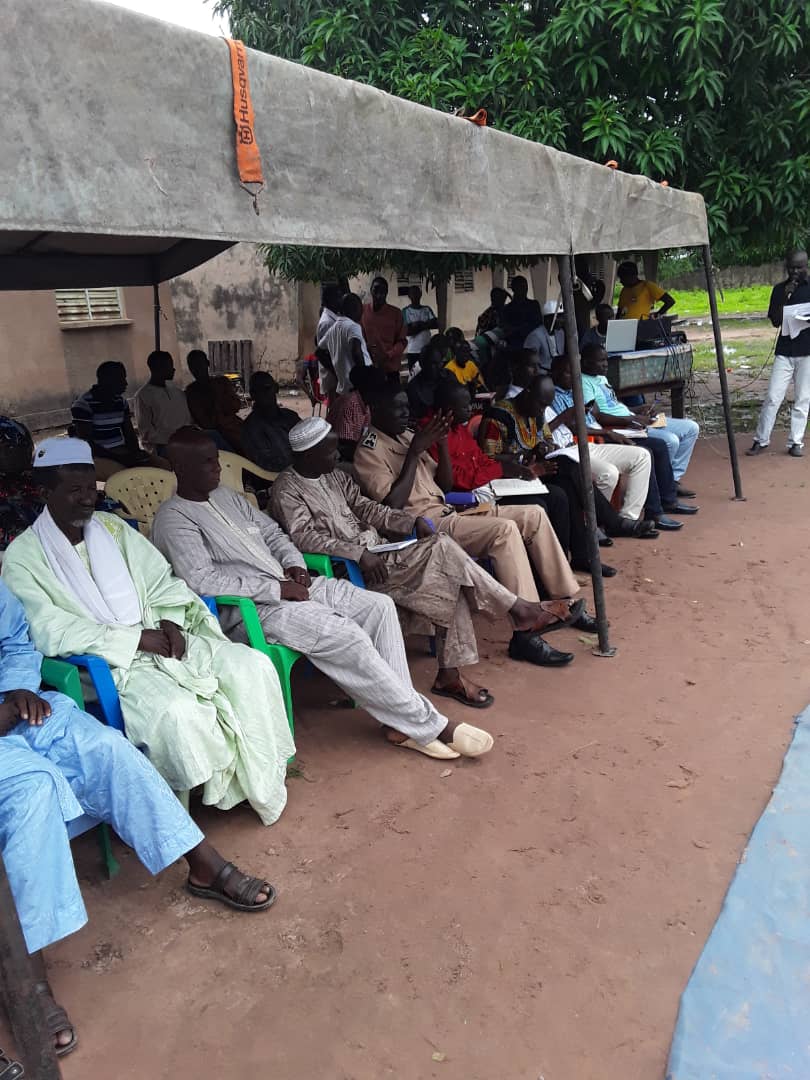By: Haruna Kuyateh
Action Aid International The Gambia (AAITG) in partnership with the Female Lawyers Association of the Gambia (FLAG) recently wrapped up a three-day Training of Trainers (TOT) program on empowering rural women on a guide to land rights.
The training held in Kudang of Central River Region was funded by Alliance Biodiversity and CIAT through the ROOTS Project and was attended by 25 participants drawn from the ROOTS project, Gender Focal Point, and Media.
The training formed part of the capacity enhancement of empowering trainers and women, on the need to galvanize efforts towards the empowerment of women in food security and sustainable livelihood.
The Empowering Rural Women Guide was designed to raise awareness about women’s land rights and trigger public discourse on the need to support women-owned and controlled productive land.
At the end of the training, five teams were deployed to the North Bank, Lower River, Central River North and South, and Upper River Regions.
Haddy Danden Jabbie, a lead Consultant from FLAG described the partnership with Action Aid International The Gambia for building the capacity of personnel on women’s land rights issues, with the ultimate objective of strengthening women’s capacity for production and productivity.
She noted that customary tenure applies to most of the country’s land and administered by district authorities which include chiefs, alkalolu, and kabilo (clan) heads, adding that it is evident that customary tenure is largely determine by land management practices based on kinship r lineage which have evolved over time.
Binta ML Ceesay, Women Rights Manager at AAITG underscored the importance of rolling out training of trainers, to develop the positive mindset of rural dwellers on the need to support women land rights.
She said the developed women’s land rights guide manual would contribute to the effective transfer of knowledge and skills in the course to bring social and behavioral changes.
She dilated on it that the manual clearly articulated legal and customary way of land administration, citing 1997 constitution, Women Act 2010, and the Shariah.
She, therefore, assured of Action Aid International the Gambia fullest commitment to women land rights to enhance ownership, with the view to contribute immensely on food production and economic development.
Miss Anna Njie, President of the FLAG expressed delight on the commitment of civil society organizations in partnering with government to broaden the understanding of land administration and management as stipulated in 1997 constitution, Women Act, and Shariah.
She explained that the “Women Act 2010 and Women Amendment Act 2021 section 11 provides: Every woman, whether by means of inheritance or otherwise, has the right to acquire and own movable and immovable property and to administer, manage, and dispose of the property freely without restriction. Section 43 provides: Every woman shall enjoy equitable right as men in case if separation, divorce annulment of marriage, subject to personal law.
The 1997 constitution serves as the fundamental law of the land embodying principles of human rights and freedoms of all individuals without discrimination.”
She went on that the Land laws: The statutes that determine rights in land are two: State Land Act 1991 (as amended) with the State Lands Regulation made under it, and the Act 1945 (as amended).
Fafa O Cham, Head of Policy and Programme at Action Aid International The Gambia reiterated the need for concerted efforts to support women’s land rights initiative to bring about meaningful attitudinal changes. He noted with satisfaction with the partnership with the ROOTS project and FLAG for building capacity of key stakeholders in the drive towards effective consideration on women and land.
Cham noted that the outcomes of the community engagement would contribute to the communities benefiting from agricultural projects and NGOs to boost food production and productivity.





